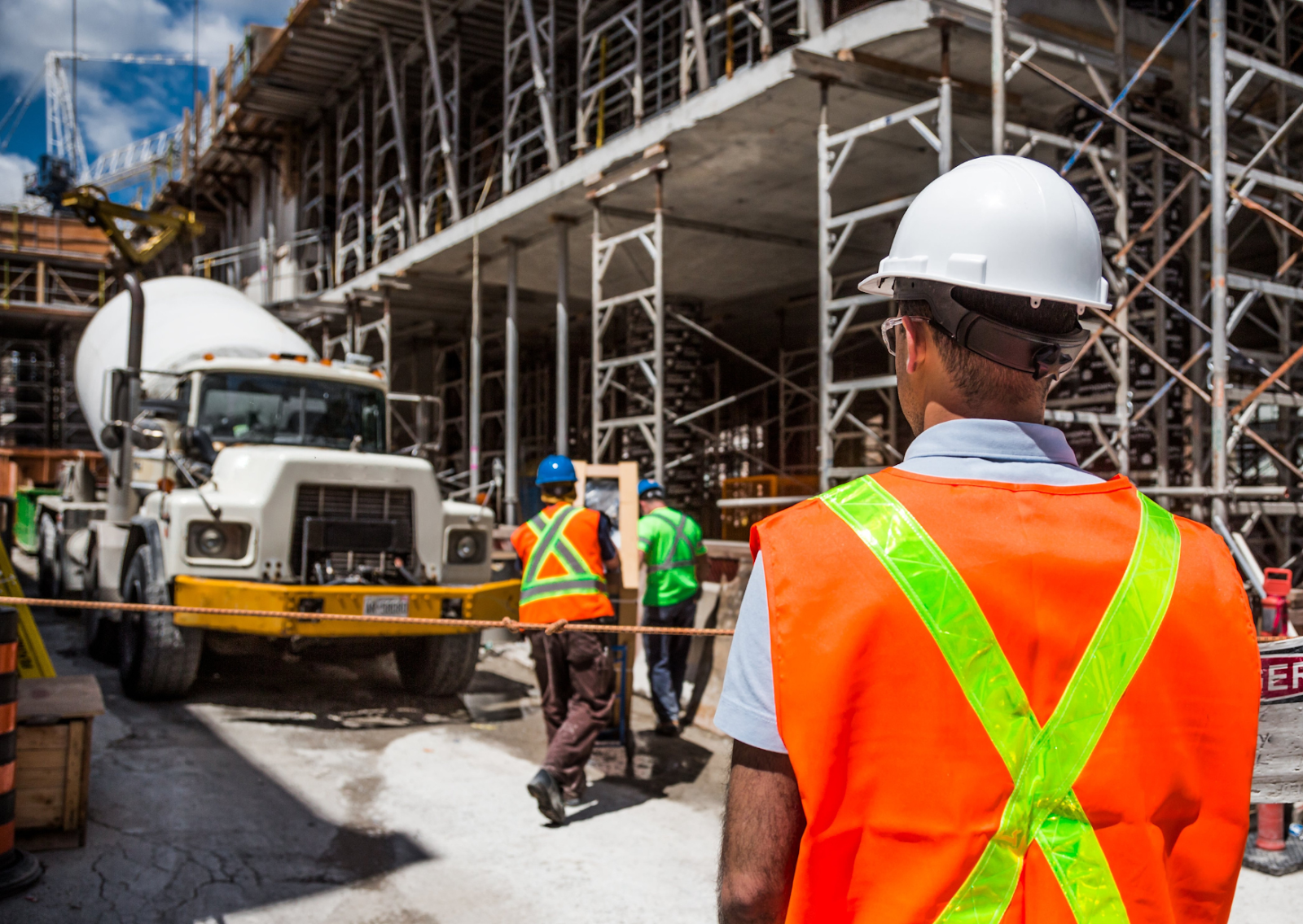What Does Real Estate Development Involve Today?
Real estate development is more than just constructing buildings. It involves a full lifecycle of activities, from identifying viable land to planning, designing, financing, building, and managing properties. A strategic approach is essential to ensure that the right kind of development occurs at the right location and time. In both urban and suburban areas, real estate development has become a cornerstone of economic growth and social progress.
Whether it’s a commercial property or a residential real project, developers must balance demand, cost, regulations, and community needs. Developers act as coordinators and visionaries, transforming raw land into valuable, functional spaces. In this context, a strategic approach ensures that every phase, from land entitlement to estate management, aligns with market realities and long-term planning goals.
How Does Land Entitlement Influence Development Success?
Land entitlement is one of the most critical phases in a development project. This process involves obtaining legal permissions to develop a piece of land for a specific use, whether commercial or residential. It typically requires working with local government bodies, planning commissions, and zoning boards. Strategic estate developers know how to navigate these complexities, ensuring that the proposed development complies with land use policies and regulations.
Poorly handled entitlement processes can delay or derail entire projects. Conversely, successful entitlements can increase land value and unlock financing opportunities. This is why development firms often invest in consultants, legal experts, and environmental assessments early in the planning phase.
Why Is Strategic Planning Crucial in Commercial and Residential Real Estate?
Strategic planning helps developers align their vision with market needs, regulatory frameworks, and financial viability. A development firm that fails to plan may overbuild, underestimate costs, or neglect community input—risks that can severely affect project outcomes.
For instance, when developing commercial property, a company needs to analyze foot traffic, local demographics, and potential competitors. Similarly, residential real estate projects benefit from plans that account for school districts, amenities, and commuting options. With a well-crafted plan, developers ensure that their estate development contributes to a vibrant, functional community.
What Role Do Financing and Loans Play in Development Projects?
Financing is a cornerstone of any successful development. Securing the right loan or investment capital at the right time can make or break a project. Development firms typically work with banks, credit unions, and private investors to obtain loans tailored to project phases, from land acquisition to construction.
A broker may help match developers with the most suitable mortgage or funding structure. Often, real estate development projects require a mix of short-term construction loans and long-term mortgages. Effective financial planning allows developers to maintain cash flow, cover unexpected costs, and assure stakeholders of a strong return on investment.
How Does a Development Firm Approach Commercial Property Projects Differently?
Commercial real estate demands a distinct strategy compared to residential developments. It involves higher upfront investment, longer timelines, and more complex regulatory requirements. Strategic planning must consider tenant needs, property management logistics, and scalability.
For example, a commercial property like a shopping center or office building must factor in parking, accessibility, zoning regulations, and environmental impact. A development firm will often collaborate with engineers, urban planners, and city officials to optimize the site for long-term viability. These efforts are supported by detailed feasibility studies and risk assessments.
How Is Residential Real Estate Evolving in Urban Areas?
Urban development is reshaping how residential real estate is approached. High-density housing, mixed-use developments, and sustainable building practices are becoming standard. Estate developers are under pressure to build homes that are affordable, environmentally friendly, and aligned with community values.
Modern estate development in cities often involves transforming underutilized land into housing complexes that include retail space, green areas, and access to public transit. These projects require coordination with city officials and the community. The strategic goal is to enhance livability while meeting housing demand.
What Are the Key Responsibilities of an Estate Developer?

An estate developer oversees the entire development process—from conceptual planning to property handover. Their responsibilities include site selection, financial planning, design coordination, and construction management. They also handle compliance, environmental reviews, and stakeholder communication.
By staying involved throughout the lifecycle of a project, developers ensure that it stays on track, within budget, and compliant with all regulations. A competent estate developer brings together architects, builders, engineers, and financiers to deliver projects that meet both market demands and community standards.
How Important Is Site Selection in Development Projects?
Site selection lays the groundwork for a successful project. It involves evaluating land based on zoning laws, access to infrastructure, environmental conditions, and proximity to target demographics. The wrong site can lead to cost overruns, construction delays, or poor market reception.
A development firm typically conducts thorough market research and land assessments to choose the right location. Geographic information systems (GIS), environmental impact reports, and demographic studies help determine if the land is suitable for the planned use. Strategic site selection maximizes a project’s value and long-term success.
How Do Property Management and Estate Management Contribute to Long-Term Value?
Once a development project is complete, property and estate management ensure it remains profitable and well-maintained. This includes tenant relations, maintenance, budgeting, and compliance with local laws. Good management preserves property value and improves the user experience.
In commercial projects, property management might include retail leasing, common area maintenance, and customer engagement strategies. For residential developments, estate management focuses on homeowner satisfaction, landscaping, and community services. A strategic development firm often offers or partners with professional managers to maintain high standards.
What Makes a Development Project Truly Successful?

Success in real estate development is measured by more than financial returns. A successful project balances profitability with community benefit, environmental responsibility, and long-term usability. From land entitlement to the final building handover, each step must be executed with care, insight, and strategic foresight.
Ultimately, it is the vision, discipline, and adaptability of the estate developer that determine a project’s success. Whether the goal is to revitalize a downtown area with commercial property or bring new homes to a growing suburb, strategic planning and execution are non-negotiable.
Why Should You Choose a Strategic Development Partner?
If you’re considering starting or investing in a development project, partnering with a team that has a proven track record in both commercial and residential real estate is essential. This is where a company like MID Construction Group excels. With deep experience in complex, ground-up projects and a focus on strategic site selection, financial planning, and high-quality construction, they are equipped to guide your project from concept to completion.
By choosing a reliable partner, you ensure that every aspect of your development, from entitlement to estate management, is handled with expertise and care. Contact us now for more information!
Final Thoughts
A strategic approach to development and real estate isn’t just a competitive advantage—it’s a necessity. Whether you’re transforming empty land into a thriving community or building a new commercial hub, success depends on planning, coordination, and execution across every phase of the project. With the right development firm by your side, your vision for land, property, and community can become a reality.
Works Cited
U.S. Department of Housing and Urban Development. “Building and Development Permits.” HUD.gov, https://www.hud.gov/program_offices/community_planning/environment/review/permitting.
American Planning Association. “What Is Land Entitlement?” Planning.org, https://www.planning.org/knowledgebase/landentitlement/.
National Association of Home Builders. “Multifamily Housing Development Process.” NAHB.org, https://www.nahb.org/.
Urban Land Institute. “Development Finance.” ULI.org, https://uli.org/research/real-estate-finance/.
National Association of Realtors. “Commercial Real Estate Market Trends.” NAR.realtor, https://www.nar.realtor/commercial-market-insights.
Frequently Asked Questions
1. What is land entitlement and why is it important in real estate development?
Land entitlement is the process of securing legal permission to develop a specific parcel of land. It is a vital early step that affects project viability, potential land value, and the ability to secure financing.
2. How does strategic planning impact commercial and residential real estate projects?
Strategic planning ensures that development aligns with market demand, local regulations, and financial goals. It helps avoid costly mistakes and supports long-term success in both commercial and residential projects.
3. What are the main responsibilities of an estate developer?
An estate developer manages the full development lifecycle, including site selection, planning, financing, construction, compliance, and eventual property or estate management.
4. How does site selection influence the outcome of a development project?
Choosing the right site involves evaluating zoning, demographics, infrastructure, and environmental factors. A well-chosen site boosts a project’s chances of financial success and community acceptance.
5. What is the role of estate and property management after construction is complete?
Post-construction management maintains the value and functionality of the property through tenant relations, maintenance, budgeting, and legal compliance—ensuring the long-term success of the development.





